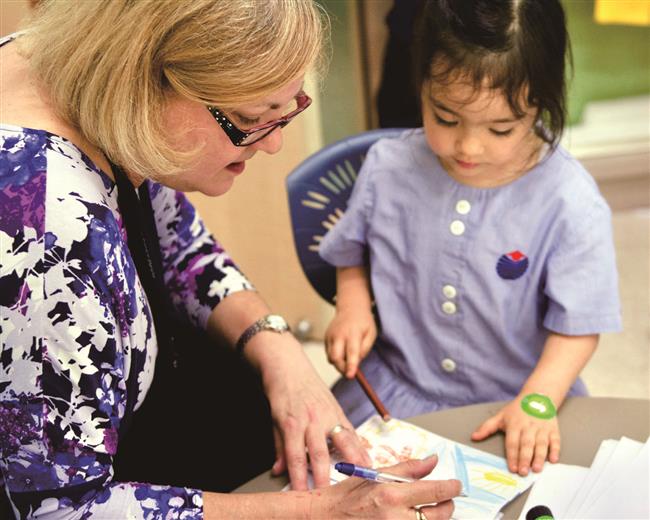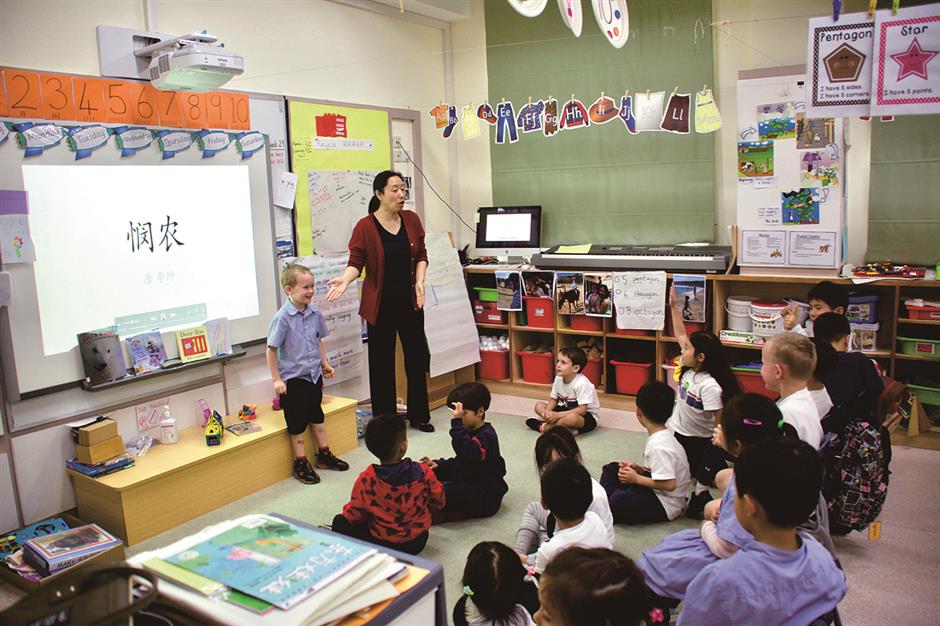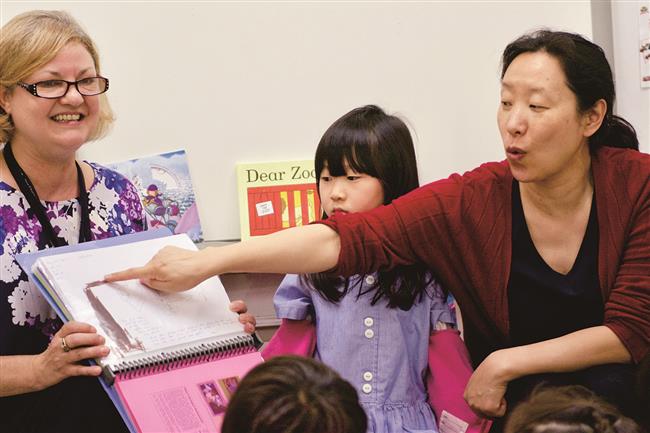For the youngest learners: Three developmental benefits of a quality early childhood education
With the speed and way in which young children learn, toddlers are often referred to jokingly as “sponges,” soaking up different elements of their experiences, relationships and environments. In fact, there is truth to this metaphor. According to Walter S. Gilliam, director at The Edward Zigler Center in Child Development and Social Policy and associate professor of Child Psychiatry and Psychology at the Yale School of Medicine, “During the first two to three years of life, neurons are being connected at a rate that far surpasses any other age period, and the baby’s brain reaches about 80 percent of adult volume. It is during this time that the basic brain architecture is being formed.”
Added to this is the impact of the child’s environment. Arthur J. Rolnick, a senior fellow and co-director of the Human Capital Research Collaborative at the University of Minnesota, explains: “From birth until about five years old, a child undergoes tremendous growth and change. If this period of life includes support for growth in cognition, language, motor skills, adaptive skills, and social-emotional functioning, the child is more likely to succeed in school and later contribute to society.”
As a result, most parents are eager to take advantage of these critical years to help set the foundation for their child’s future. While there are various educational options available for families in Shanghai today, many parents are eager to have their child take part in a quality program of learning with a qualified early childhood education (ECE) provider which can yield demonstrated and measurable benefits for their child. At one school in the city, Yew Chung International School of Shanghai (YCIS), providing children with the environment and educators to help them develop to their full potential in Kindergarten is core to the school’s philosophy.

An YCIS co-teacher interacts with a child to help guide narratives and learning through exploratory play.
Purposeful play
Children develop their cognitive abilities in early years in various ways; however, research has shown that “play” can provide multiple benefits for children’s development. One approach to early childhood education utilizes a concept called “Exploratory Play,” and Anna King, a Kindergarten teacher at YCIS, explains that through this, young children benefit by engaging in an approach to learning that is not only fun and multi-faceted, but also promotes a deeper internationalization of concepts. “We are essentially following what the child wants to do during exploratory play. It’s important because in this stage, we are introducing them to learning, and making it fun so they develop a joy for it. It’s marvellous to see the multiple ways in which a child develops through play, including their sense of self, their roles in groups, how to behave in social situations, how to ask and answer questions, and in their creativity. We do this by providing an environment which allows the children to be investigative and inquisitive, and to spend as long as they like on what they find fascinating. And through these emerging interests, we guide them into deeper exploration of concepts. The details come over a long period of time, and with that, comes the benefit of deeper grasping of concepts, rather than just rote learning. What they do naturally is an important part of exploration and moulding their own identities and interests, and knowing how to ask questions and find answers. In this way, they truly love and enjoy learning, all while building a strong foundation of knowledge and skills they will draw upon as the grow.”

Interactive Language Time is always exciting, with students eager to participate in songs and activities.
Connecting through communication
A quality early childhood educational program will augment “Exploratory Play” with regular, designated time which is guided by the classroom teachers. At YCIS, this is called “Interactive Language Time (ILT),” and it can take many forms, such as story reading, circle time, and the ever-popular “Show and Tell.” During this time the teachers introduce lessons on a range of academic concepts and focus on positive character traits, supporting their social and emotional development. King explains, “ILT provides opportunities to get together as a class or in small groups to further explore the topics which have emerged through the exploratory play time. The circle times are truly what helps things “gel” together, and we praise and encourage the children when we observe them displaying an understanding of concepts such as counting, organizing, or literacy, or practicing elements of our character education program, like being generous or helpful. Parents are always commenting on how beautiful it is to see their child mature in the areas of respect, social behavior, and taking responsibility in our program, and it’s easy, because it’s all guided by student interest!”

At YCIS, Bilingual Time is always facilitated by both co-teachers helping students build connections between both languages.
Building a bilingual base
Another opportunity for parents of young children in Shanghai is to be able to give their children exposure to a second or third language, and to other cultures. At YCIS, the Kindergarten classes are taught by two fully qualified co-teachers, one international and one Chinese, and this unique model results in students focusing on both English and Chinese language acquisition.
Maggie Shao, King’s co-teacher, explains that the daily “Bilingual Time” strengthens a child’s language ability and adaptability, “We want to help children build their communication ability in both languages; and to help them start to have a global mindset and an understanding of the world. In our classroom, it is normal to hear students communicate in both languages. Parents are always amazed at how their child’s language skills grow as a result, and how much faster their child understands concepts in their native language, as well. We give them the tools to understand and interact with the culture they are currently living in, and the bi-cultural approach makes the students more adaptable in different situations beyond the classroom due to appreciation of the cultural diversity they celebrate in the class with us.”
While the brain neurons are becoming established in those magical first five years, parents can set their child up for a strong future just by placing them in a Kindergarten program like the one at YCIS, where the students expand their cognitive abilities and become skilled little linguists, all while developing important key social skills. Having this happen in a school that celebrates and instills “the joy of learning” for students is an additional benefit, and is a very concrete way to get children on their road to academic and personal success.















